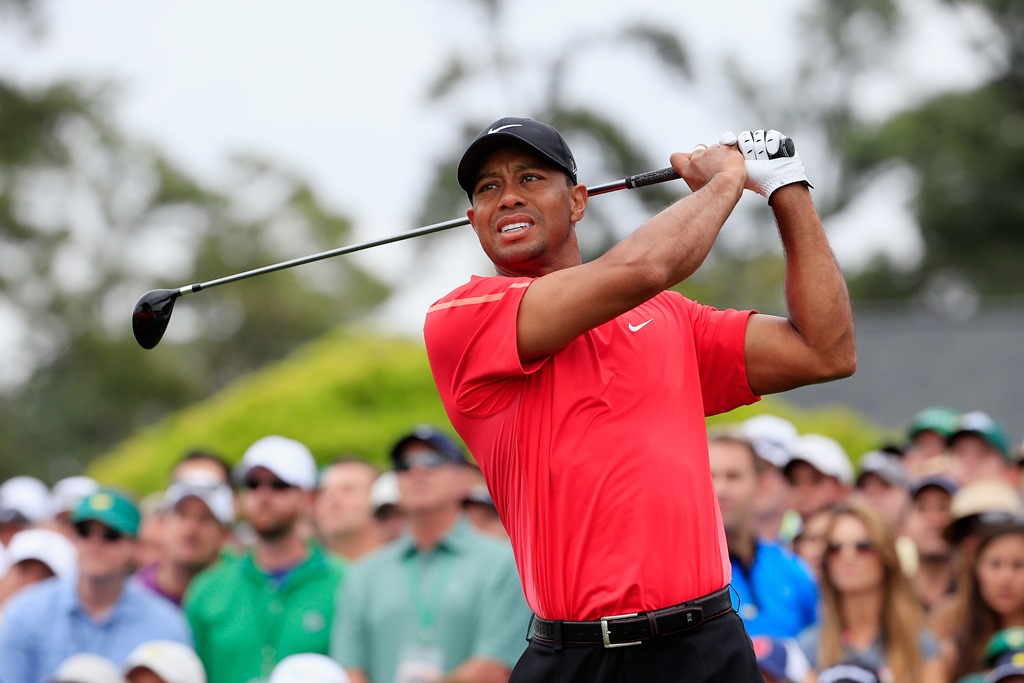Will Tiger Put Us To The Test?



There are so many benefits to diversity. One benefit is that when we’re hearing from a wider and more representative range of people, we begin to process situations through different perspectives. Which is why over the last few years, many of us have been interrogating our own lenses, revisiting and revising our worldview through #MeToo, Black Lives Matter, political activism, all of it in the hopes of creating a more inclusive and caring culture.
The cultural reckoning that’s happened most recently is about Britney Spears, following the release of the NYT documentary Framing Britney Spears. All of us, including media and fans and other celebrities themselves, are now reexamining how we talked and felt about Britney, and almost everyone was complicit in how devastatingly unfairly she was treated. I’ve been thinking about all of this over the course of the last 24 hours after news broke that Tiger Woods was involved in a single-car accident in California, resulting in emergency surgery. His team has since released a statement:
— Tiger Woods (@TigerWoods) February 24, 2021
If one of the conversations we’re having in 2021 is about media and public responsibility, will Tiger put us to the test?
Minutes after the accident, Tiger was trending on social media. And I’m sure you can imagine what some of the posts were about – there was speculation, there was a rehash of his past, there were already rumours.
And this comes just a few weeks after the HBO two-part documentary, Tiger, which Team Tiger called “salacious” and repudiated. But with this recent accident, people are considering the story that was told in the film and, well, probably making some assumptions.
I didn’t care for the documentary, particularly part one. Having interviewed one of the directors, Matthew Hamachek, I get that the intention was to tell Tiger’s story compassionately and fairly, but they were working from a book, Tiger Woods, by Jeff Benedict and Armen Keteyian, that in my opinion does not present Tiger’s life through that 2021 lens that I referred to at the beginning of this post. To me the film read like an indictment of Tiger’s family, in particular his father, Earl Woods, but there is some shade thrown at his mother, Kultida, too – the suggestion being that they raised him to be a winner first and not a human being. There is no consideration or nuance given to the fact that Earl Woods’s expectations for his child, and his parenting style, were undeniably shaped by his experience as a Black man in America and a veteran. Same goes for Kultida’s approach as an immigrant mother. One of the biggest omissions is the documentary’s complete disregard of Earl’s mental health, having served in Vietnam, and what impact that would have had on his conduct later on. They focus on his cheating and his drinking, but fail to make a connection between the fact that he went to war and basically dropped bombs on people and had to come home and wrestle with those demons. Instead, all we’re told is that Earl was a chronic womaniser and drank too much. And when you cut in between that and the criticism of the way they raised Tiger with interview clips of his white ex-girlfriend talking about how he would come over to her home in high school and hang out with her loving “all-American” family who embraced him and showed him warmth and love, already you’re setting up an unbalanced comparison. When that seed is planted, everything else in the story becomes spoiled. Not all the way through, but enough to contaminate the conversation.
To be fair, the documentary does spend some time on how gross the coverage of Tiger’s cheating scandal was (that would be the media) and how gross the consumption of that coverage was (that would be us). And members of the American pro golf community come out looking like assholes too – in particular Hootie Johnson, then chairman of Augusta National, where the Masters tournament takes place every year, and his public and sanctimonious censure of Tiger during a press conference. As if a dude who CHAIRED THE MOST HALLOWED GOLF TOURNAMENT in America, a sport rooted in white supremacy and misogyny, would be so shocked about a man’s infidelities!
At the time though, Hootie did his thing, a verbal lashing of Tiger, without consequence. Nobody put up much noise about how offside that was. Had that been today? Twitter would be lighting up his ass. But back then, this was accepted, a southern white man scolding a Black man with a megaphone, not over what he did on the course but what he was doing in his professional life. That sh-t doesn’t work in 2021. But watching that back now, in 2021, it becomes shamefully obvious, yet again, how ignorant we all were.
A lot of people have been talking about the Tiger documentary and more so now that Tiger’s in crisis again and perhaps filtering the accident through his backstory. So it’s an opportunity to do better, to put those lessons into action. If that means using the example of Hootie and not going down that same path… great. But if it means making more assumptions about his family history, with the narrow takeaway presented in the film about how Tiger’s upbringing failed him and led to all of his problems (and, frankly, the way they depict Tiger’s struggles is humiliating in and of itself as the doc opens with footage of him totally out of it in police custody), I wonder if we, the collective we, the press, the public, everyone, will actually rise to the occasion.
